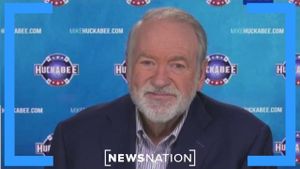San José State University’s volleyball team has recently found itself at the center of heated controversy as multiple opposing teams have forfeited matches against them due to the presence of Blaire Fleming, a transgender player on their roster. This conflict, which has incited strong opinions and actions from various stakeholders, is reshaping local sports dynamics and raising questions about ethics, fairness, and inclusivity.
On November 9, the University of Wyoming's Cowgirls volleyball team made headlines by announcing their second straight forfeit of the season against the Spartans. The initial forfeit took place on October 1, and now, as the teams were slated to meet again, Wyoming cited the presence of the transgender athlete as the reason for their refusal to compete. Governor Mark Gordon of Wyoming openly supported this move, stating, "It is important we stand for integrity and fairness in female athletics,” a sentiment echoed by many supporters of the forfeit.
This pattern of forfeiting matches against the Spartans began earlier this season when Boise State opted out of the game against them, citing similar concerns over the inclusion of Fleming. Following Wyoming's announcement, Southern Utah and Nevada also forfeited, bringing the total to several opponents having sidelined their games against SJSU.
The rules of the Mountain West Conference stipulate these forfeits will count as losses for the teams who opt out, granting the Spartans victories on paper. They currently boast a record of 13-4, augmented by these unplayed matches. The fallout from these decisions isn’t limited to sports standings; these actions have ignited broader discussions around the rights of transgender athletes and their place within women’s sports.
Adding to the complexity of this situation is the mounting legal pressure stemming from the Independent Council on Women’s Sports, which has filed lawsuits against the NCAA over the inclusion of transgender women (individuals assigned male at birth) in women’s competitions. A fellow teammate from SJSU has even joined this legal challenge, putting personal identities and team dynamics under scrutiny. This teammate's decision to become a plaintiff has brought significant media attention to the matter, positioning it at the intersection of sports, law, and social commentary.
Opponents of the trans-inclusive policies argue they threaten the fairness of women's sports, advocating for what they believe to be the need for biologically defined categories—contentious and fraught with emotion. Advocates for transgender rights, on the other hand, argue for inclusion and the acknowledgment of gender identity outside of strict biological definitions. This dichotomy is not just limited to high school or college levels; it extends throughout other sports domains, such as the Olympic Games, prompting organizations to reevaluate their policies constantly.
Meanwhile, San José State University has responded firmly, affirming their support for Fleming and emphasizing their adherence to NCAA regulations, which validate her participation. They expressed disappointment at the cancellations, highlighting how such forfeits deny their student-athletes valuable opportunities to compete. Their statement reflects both pride in their players and commitment to creating inclusive athletic environments.
The discussions resulting from these forfeits have spilled beyond the court, sparking conversations among fans, commentators, and lawmakers. Ellison Muir, co-captain of the Spartans, echoed sentiments of confusion and frustration from within the team, noting the struggle they face amid the spotlight. She spoke about their dedication to supporting all teammates, regardless of identity, and emphasized the importance of unity.
Significantly, future matchups for San José State include opponents who have also faced questions about their organizational policies on trans inclusivity. The Spartans are set to play the San Diego State Aztecs shortly, who have not indicated any intention to forfeit, giving them the rare opportunity to compete uninterrupted. Nevertheless, uncertainty looms over their match against the Colorado State Rams, which follows on the heels of the Spartans' forfeited match against the Cowgirls.
The scenario at San José State and the surrounding institutions, going beyond merely sports, presents each concerned individual—from players and coaches to lawmakers—a chance to interact with complex ethical questions on gender, inclusion, and equity. With the specter of increasing legal and public scrutiny hovering above, this incident encapsulates modern social movements' tension, illustrating how deeply interconnected sports and society have become.
While it is yet to be seen how these conflicts may influence the future of women’s athletics, one thing is clear: the discussions ignited by the San José State volleyball team's predicament are not just about wins and losses but touch on personal identities and broader societal values. The ways institutions respond, adapt, and interact will likely shape not just sports but societal constructs around gender and fairness for years to come.
At the core of the issue is Blaire Fleming, whose involvement brings both triumphant representation for trans athletes and substantial debate about the definition of fairness and inclusivity within women's sports. Amid these uncertain circumstances, the focus remains on the athletes who put their heart and soul onto the court. They are the ones enduring the weight of this historic controversy, with the hope they can continue to compete and showcase their skills. While sports should ideally serve as arenas for spirited competition, they have become stages for much larger dialogues about identity, belonging, and the meaning of athletic achievement.
These conversations will likely persist as longer-term discussions about bodily autonomy, opportunities for all athletes, and the rules governing sport continue to evolve. The intersections of law, policy, and personal identity highlight the urgent need for clarity and compassion as communities work to find common ground. Whatever the conclusion, what’s evident is the path forward is as complex as the conversations surrounding it.



